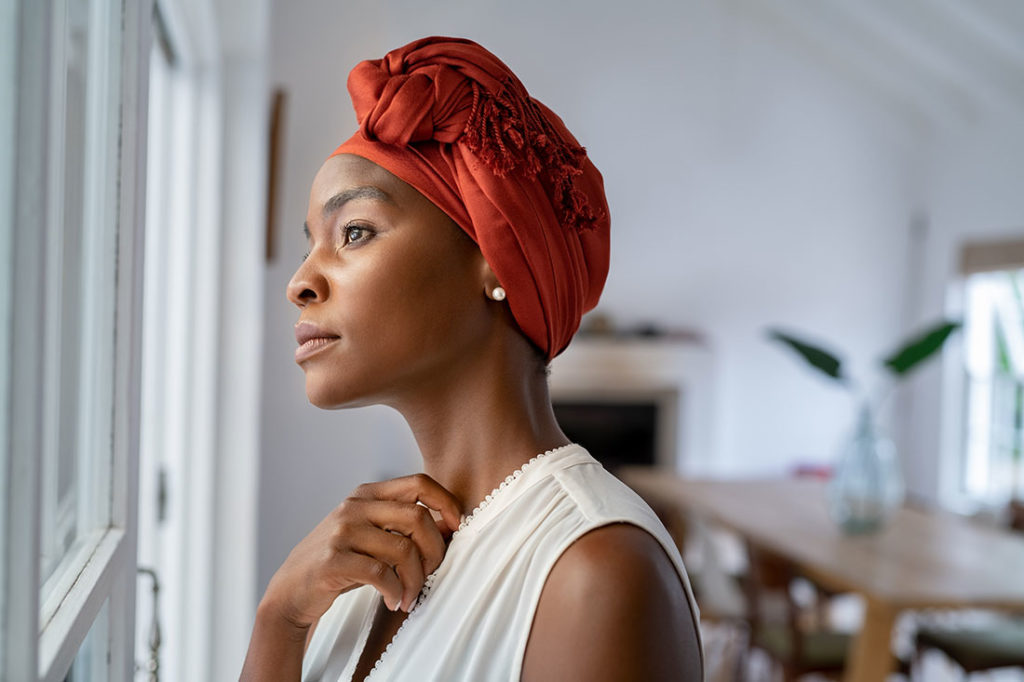Between 2018 and 2020, my life was hit by a series of difficult experiences. My grandmother died, I underwent an unexpectedly difficult shoulder surgery, my parents got divorced and my father-in-law had a stroke. It felt like major challenges were hitting me left and right. A few months of calm would go by, and then bam, life would smack me right back in the face.
Despite how trying some of these experiences were, I found myself to be surprisingly calm, contemplative and resilient throughout each and every one.
The tough circumstances brought my husband and I closer. I grew more emotionally than I ever had, which led me to make better decisions and protect my boundaries. Plus, I began thinking more introspectively about life, which allowed me to connect more deeply with my writing.
It turns out my feelings are backed by science. A 2019 study published in The Journal of Positive Psychology found that when it comes to creating a meaningful life, the intensity of an experience matters more than how positive or negative it was.
This study attempted to determine whether it wasn’t the valence of an experience—that is, how positive or negative the experience was—that mattered, but rather the emotional extremity of it. The authors conducted three studies, two of which asked participants to rate several aspects of a significant life event:
- How meaningful an experience was
- How pleasant or painful the experience was
- How emotionally intense the experience was
- Social connection, or how much the experience was shared with others
- How much contemplation the event stimulated
- How unique the experience was to the individual
- Whether participants thought fate was involved
- How much personal growth the event inspired
The researchers found that tremendously happy and sad experiences were equally as meaningful, and that extremely emotional events were more significant than milder, more neutral ones.
“Particularly painful and particularly pleasant events may both be meaningful, in part, because of their shared tendency to be experienced as emotionally intense,” the study authors wrote.
In an attempt to better understand this conclusion, I asked myself the above questions regarding a major event in my own life: the recent divorce of my parents. The event was painful, emotionally intense and traumatic—there’s no doubt. But, it was also meaningful in that it inspired a deeper connection between myself and my twin brother, forced me to contemplate how my childhood contributed to who I am today, and inspired more personal growth than any other moment in my life thus far.
The divorce of my parents ranks high in the most significant moments of my life—right next to other major milestones like my wedding day. Although one was incredibly positive and one was very negative, I’d argue both have had an equally significant contribution to my life story.
The authors concluded that when it comes to the search for meaning in our own lives, it’s best to take a look at the most extreme experiences.
“We found that these commonalities may reveal a more complete and nuanced picture about what determines the events we find meaningful and memorable,” the study authors wrote. “Extreme events were found more meaningful, in part, because of their emotional intensity, as well as the contemplation they inspire.”
So what exactly does this all mean? As humans, we’re always on the search for meaning in our lives. We craft a version of our life story that is peppered with milestones, both negative and positive. Although you might think positive events matter most, negative ones are just as important.
Traumatic events can be difficult to process—many of us bemoan the struggle and wonder why me? But this research shows that despite how challenging traumatic events can be, they’re a necessary component of a meaningful life.
This article was published in April 2020 and has been updated. Photo by Rido/Shutterstock










